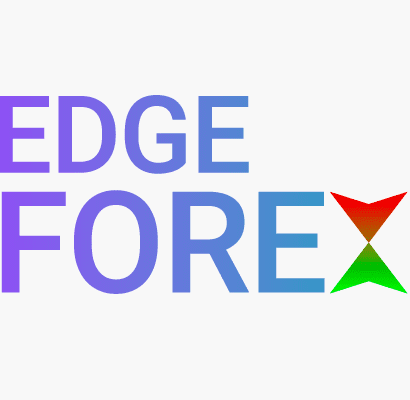Let’s be honest… is your trading starting to look more like a trip to the casino? 🎲 Are you chasing the next big win, glued to your screen for hours, making moves that feel right but aren’t really based on strategy? If that sounds a bit too familiar, then here’s the uncomfortable truth: You might be gambling with your financial future. 😬
🎰 The Thrill of the Trade vs. The Thrill of the Gamble
At first glance, trading seems like the opposite of gambling, right? After all, we’re dealing with charts 📈, patterns, news events 📰, and good ol’ technical analysis. But… is it really that different when you’re riding an emotional high and betting big on the next market move? 🤔
Let’s break it down:
In gambling: You’re betting money with a random outcome, hoping the dice fall in your favor 🎴.
In trading: You’re making decisions based on analysis… unless you’re throwing caution to the wind, ignoring risk management, and just hoping for a miracle. Sound familiar? 😨
The truth is, trading addiction and gambling addiction have a LOT more in common than you think. Here’s why👇:
-
The Rush of Winning: Whether it’s a big market move 📊 or hitting the jackpot 💰, both give you that same rush of excitement. Every win releases a dopamine hit in your brain, making you feel like a genius. But when that fades? You’re left chasing the next high.
-
The Emotional Rollercoaster 🎢: Big wins feel incredible. Big losses feel like the end of the world. This emotional rollercoaster is exactly what keeps people hooked in both trading and gambling.
-
Doubling Down 💥: Lose a trade? No problem. Just make another one, bigger this time, to make up for it… right? 🙈 This is how gamblers think—trying to win back their losses instead of taking a step back to reassess.
🚨 The Dangerous Signs You’re Addicted to Trading
How do you know when you’ve crossed the line from being a strategic trader to a full-blown trading addict? Here are a few red flags 🚩 to watch out for:
-
You’re Constantly Checking the Markets: Do you find yourself refreshing your charts every few minutes 📱, even when you’re out with friends or trying to relax? If the markets are consuming your every thought, it might be more than just dedication.
-
You’re Trading Without a Plan: Good traders follow a plan 📑. They have entry and exit points, risk management in place, and they stick to their strategy. But if you’re making trades based on gut feelings or chasing that “next big opportunity,” you’ve thrown your strategy out the window 🚪.
-
You’re Obsessed with the Highs and Lows: Are you feeling euphoric after a win and devastated after a loss? 🤯 Your emotions are playing a bigger role in your trades than they should, and that’s dangerous.
-
You’re Doubling Down on Losses: The moment you lose money, are you immediately trying to recover it by making riskier trades? This is classic gambling behavior 🎰—and a clear sign that you’re not making decisions based on logic anymore.
🏦 The True Cost of Trading Addiction
If you’re caught in the cycle of trading addiction, the cost can be huge 💸—and not just financially. Here’s what’s at stake:
-
Your Bank Account 💵: This is the obvious one. Trading on impulse can lead to massive losses, and chasing those losses will only make things worse. It’s a quick way to drain your funds.
-
Your Mental Health 🧠: Constant stress, anxiety, and sleepless nights are common for addicted traders. When every market move feels like life or death, it can take a serious toll on your mental well-being.
-
Your Relationships: Obsessing over the markets can pull you away from family and friends. It’s hard to be present when your mind is always on your trades.
🎯 How to Break Free from Trading Addiction
So, what can you do if you see yourself in these patterns? The first step is recognizing that you might be struggling with trading addiction, and that’s okay. 💡 Admitting it is the hardest part. But once you do, here’s how you can start taking back control:
-
Get Back to Basics: Revisit your trading strategy 📑. Make sure you’re following a plan, using risk management, and staying disciplined. Trading should be based on data and analysis, not emotions.
-
Set Limits: If you find yourself glued to your screen 24/7, it’s time to set some boundaries. ⏰ Limit your trading time, and step away from the charts when you feel yourself getting emotionally attached.
-
Keep Track of Your Emotions: Start keeping a journal 📔 where you write down how you’re feeling before and after every trade. If you notice that emotions are driving your decisions, it’s time to reassess.
-
Step Away When Needed: Sometimes the best trade is the one you don’t make. 👏 Learn to recognize when you’re trading for the thrill and when you’re trading smart. It’s okay to walk away from the screen for a while!
🎲 Trading vs. Gambling: Know the Difference
In trading, unlike in gambling, you can actually stack the odds in your favor by staying disciplined, sticking to your plan, and managing your risks. But once you start chasing emotional highs, doubling down on losses, and making impulsive decisions… you’re no longer trading. You’re gambling. 🎲
The big question is: Are you willing to take that risk with your financial future? 🤔
💡 Final Thoughts
Trading can be thrilling, but don’t let the excitement lead you down a dangerous path. If you recognize any of these signs in yourself, it’s time to hit the brakes 🚨 and refocus. Trading should be strategic, not emotional.
So, are you trading smart? Or are you gambling with your future? 💸
This post is originally published on ROADTOMILLION.
